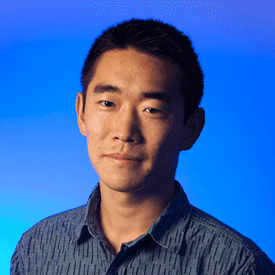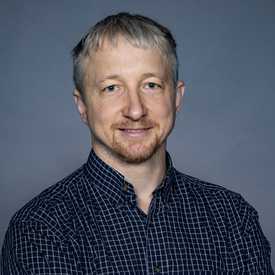Recent Alumnus Embraced Community and Service at UMD
February 8, 2023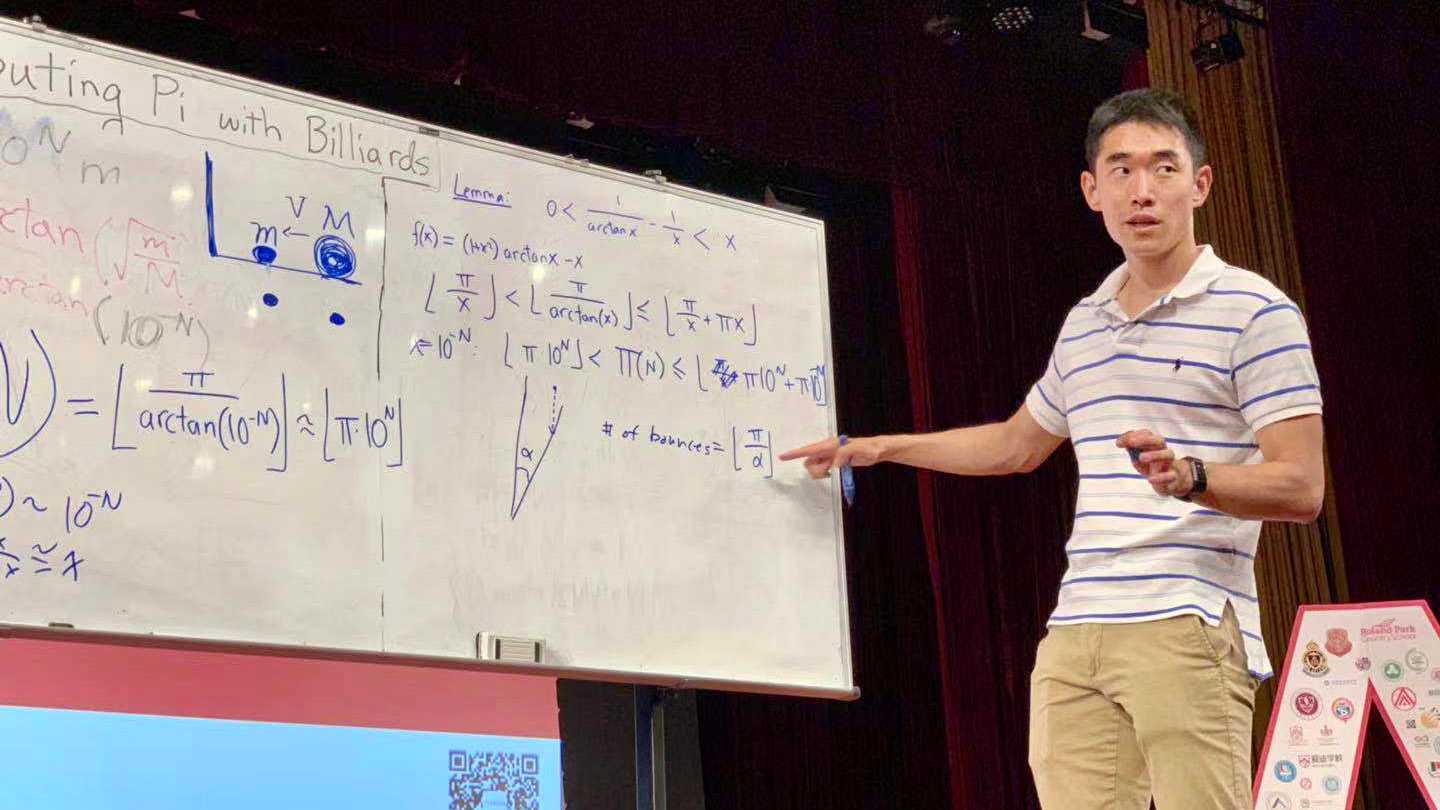
Andrew Guo teaching a lesson as part of the 2018 ASDAN Math Tournament in Beijing, China. (Credit: Yichan Yuan)
Joining a graduate program is not just about choosing a university and studying a subject. It’s also about joining a community of people who help shape the experience and can support and welcome people who are new to the world of academic research.
Andrew Guo (Ph.D. ’22, physics) spent a lot of his time at UMD researching the underpinnings of quantum interactions and algorithms as a graduate student at JQI and the Joint Center for Quantum Information and Computer Science (QuICS). During that period he also made time to connect with surrounding communities and to invite other people to participate in physics and astronomy research through the graduate student organization called Graduate Resources for Advancing Diversity with Maryland Astronomy and Physics (GRAD-MAP).
Guo credits his choice to study physics to a natural spark of curiosity, along with his childhood enjoyment of math and science.
“Physics in particular inspired me, both because of its elegance and simplicity and its ability to have a huge impact on society,” Guo says. “For me, personal curiosity was a big factor. But also, knowing that there's potential societal impact as a result of research was a key motivating factor.”
Before coming to UMD, Guo studied physics as an undergraduate at Stanford University, where he became particularly intrigued by quantum information and quantum computing.
“I thought UMD was doing great work at that area from sort of the full stack—from experimental trapped ion quantum computing all the way up to the theoretical complexity theory side,” Guo says. “So, I wanted to dive in, and they offered me a fellowship through QuICS, which I've been affiliated with through all my six plus years here. And I think I found a great community there.”
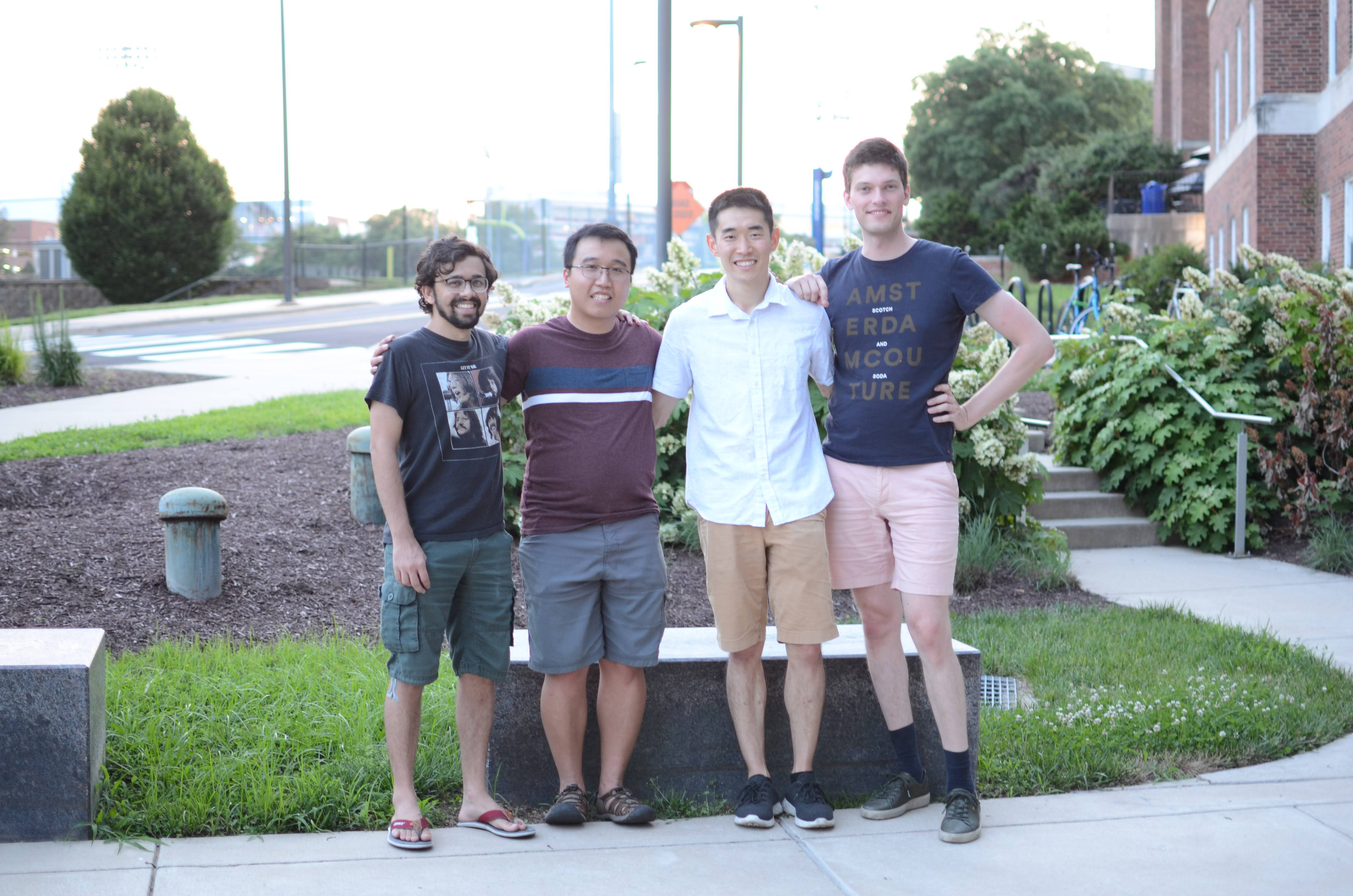
After Guo decided to come to UMD, he hadn’t settled on exactly what aspects of quantum research to focus on, and there were several professors he was open to working with. JQI Fellow Alexey Gorshkov approached him about research into long-range interacting systems. This research looked at how interactions between quantum particles that aren’t immediate neighbors influence the spread of the property called quantum entanglement and can speed up quantum computations.
“I was excited that I was able to get such an outstanding student,” says Gorshkov, who is also a Physicist at the National Institute of Standards and Technology and a Fellow of the Joint Center for Quantum Information and Computer Science. “It was fantastic, from both the research aspect and the mentoring service aspect. He did well in both, wrote excellent papers, and also was very helpful to other people in the group.”
Pursuing the line of research, Guo and his colleagues were able to make several advances, including identifying how speed limits for quantum information can depend on the particular task and making a protocol that achieves the theoretical speed limit for certain tasks.
“I found it very, very helpful to have close collaborators—people to talk to who can help you when you're stuck, who can bounce ideas off each other,” Guo says. “It was a pleasant surprise to find that the collaborative environment at Maryland was such an integral part of grad school.”
While beginning graduate research, Guo also wanted to do community outreach. Guo learned about GRAD-MAP during his first year at UMD, when one of the organization’s leaders gave a presentation to the physics graduate students. GRAD-MAP is dedicated to promoting diversity, equity and inclusion in the fields of physics and astronomy. The organization strongly focuses on reaching out to students with backgrounds that are underrepresented in physics and astronomy and bringing them to UMD to share valuable experiences in the field.
“We are grad students working to promote inclusive environments for fellow grad students, as well as increase the proportion of students who come from underrepresented minority backgrounds,” Guo says.
GRAD-MAP organizes programs to give undergraduate students insight into the world of physics and astronomy research and help them develop useful skills. The organization runs a weeklong Winter Workshop where undergraduates tour scientific facilities, perform mini-research projects and develop skills, such as writing application essays and computer programing. GRAD-MAP also organizes a 10 week Summer Scholars Program where undergraduate students can build on the Winter Workshop skills with a full research project under the supervision of a mentor. GRAD-MAP has worked with students from nearby institutions like Prince George’s Community College, Montgomery College and Howard University, as well as students from across the U.S. and outside the country.
Guo’s first January at UMD, he taught the programming language Python at the Winter Workshop. He says he was inspired by the students and kept teaching programing as part of GRAD-MAP. He eventually worked his way up to leading the entire Python portion of the workshop.
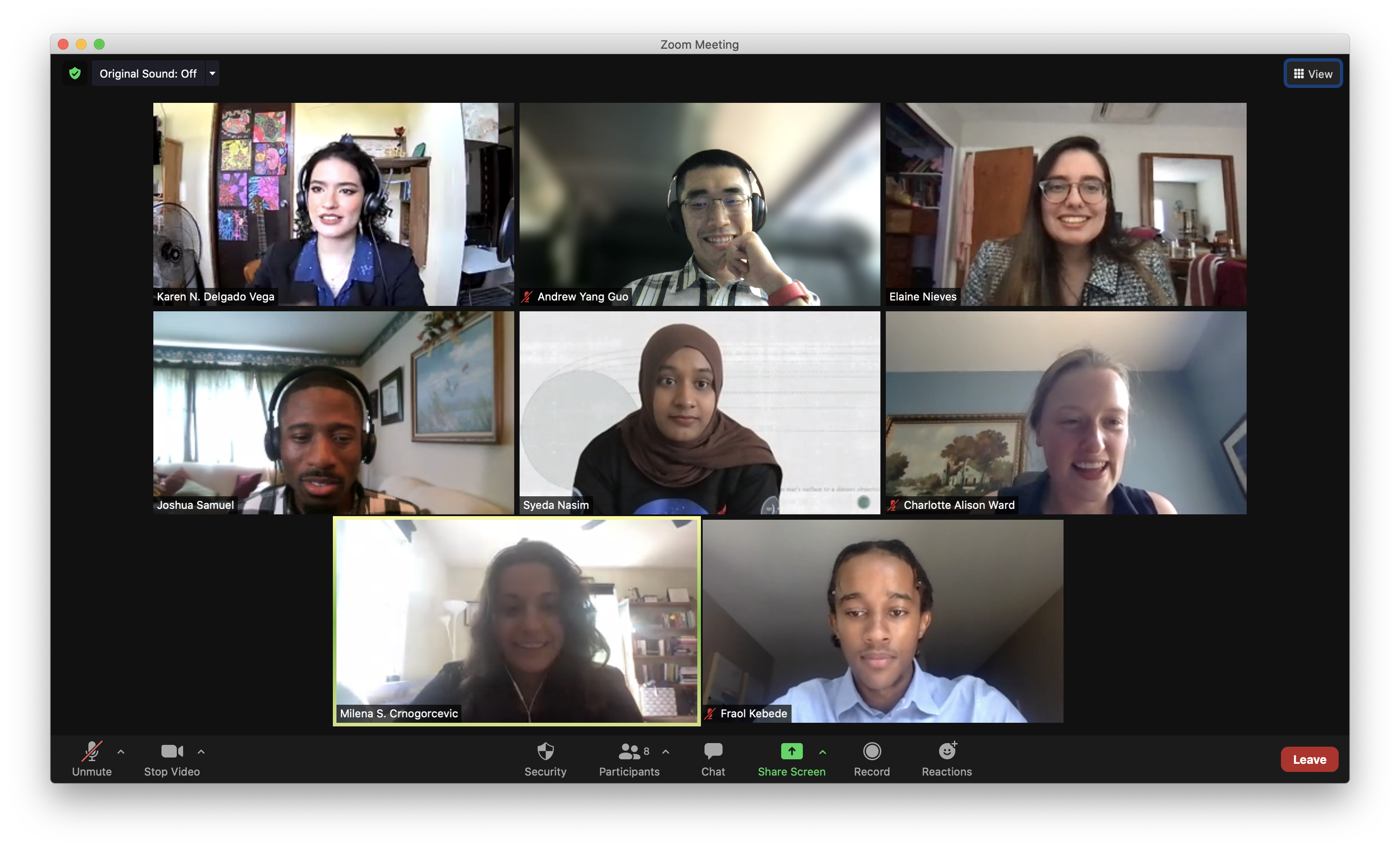
“For these students to learn programming, I think is pretty significant because it gives them a playground to test their ideas,” Guo says. “And it's very good practical training for them, regardless of what career they pursue in the future, be it physics or astronomy grad school or even a career as a software engineer.”
In the fall of 2019, he became the physics co-lead of GRAD-MAP. Then, in the face of the coronavirus pandemic, he had to pivot the program. The GRAD-MAP graduate students transitioned their outreach events online for their 2020 and 2021 Winter Workshops and 2020 Summer Scholars Program.
“A lot of credit goes to my fellow graduate colleagues who really stepped up,” Guo says. “The biggest challenge was to replicate that sense of community online, without leading to basically Zoom fatigue and burnout among the students. I think the students really were the ones who put in the most heroic effort—just going through enduring and then sticking with us as we performed this huge experiment that everybody was doing at that time.”
Despite the additional stress, Guo fondly recalls a GRAD-MAP video chat event where the Winter Workshop participants could show off talents, like playing an instrument, or share other things they cared about, like a participant discussing their plant terrarium. Guo says seeing both the engagement and lasting impact on the students from the program was very fulfilling.
During his time at UMD, Guo also joined communities outside of GRAD-MAP and his lab group. Throughout his time at UMD he lived with other physicists.
“It was definitely a uniquely collaborative, uniquely enriching experience for me,” Guo says. “Throughout COVID not being able to see your coworkers in person made this all the more valuable because you could have informal conversations.”
He also played the cello as a member of the UMD Repertoire Orchestra (now rebranded as the University Orchestra), which is open to members of the campus community, including students from non-music degree programs. He says participating in that creative expression was a nice pressure valve.
Next, Guo will be joining a new community at Sandia National Laboratories as a postdoctoral researcher and says he hopes to participate in outreach efforts there.
Story by Bailey Bedford
Experts
People
![Profile photo of Andrew Guo]()
Andrew Guo
Advanced Physicist at Quantinuum. Position right after UMD: postdoc at Sandia National Laboratory. Former graduate student.
![headshot of Alexey Gorshkov]()
Alexey Gorshkov
Adjunct Professor
Groups
JQI
